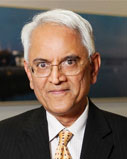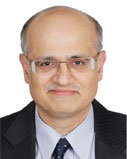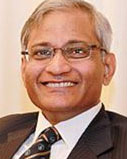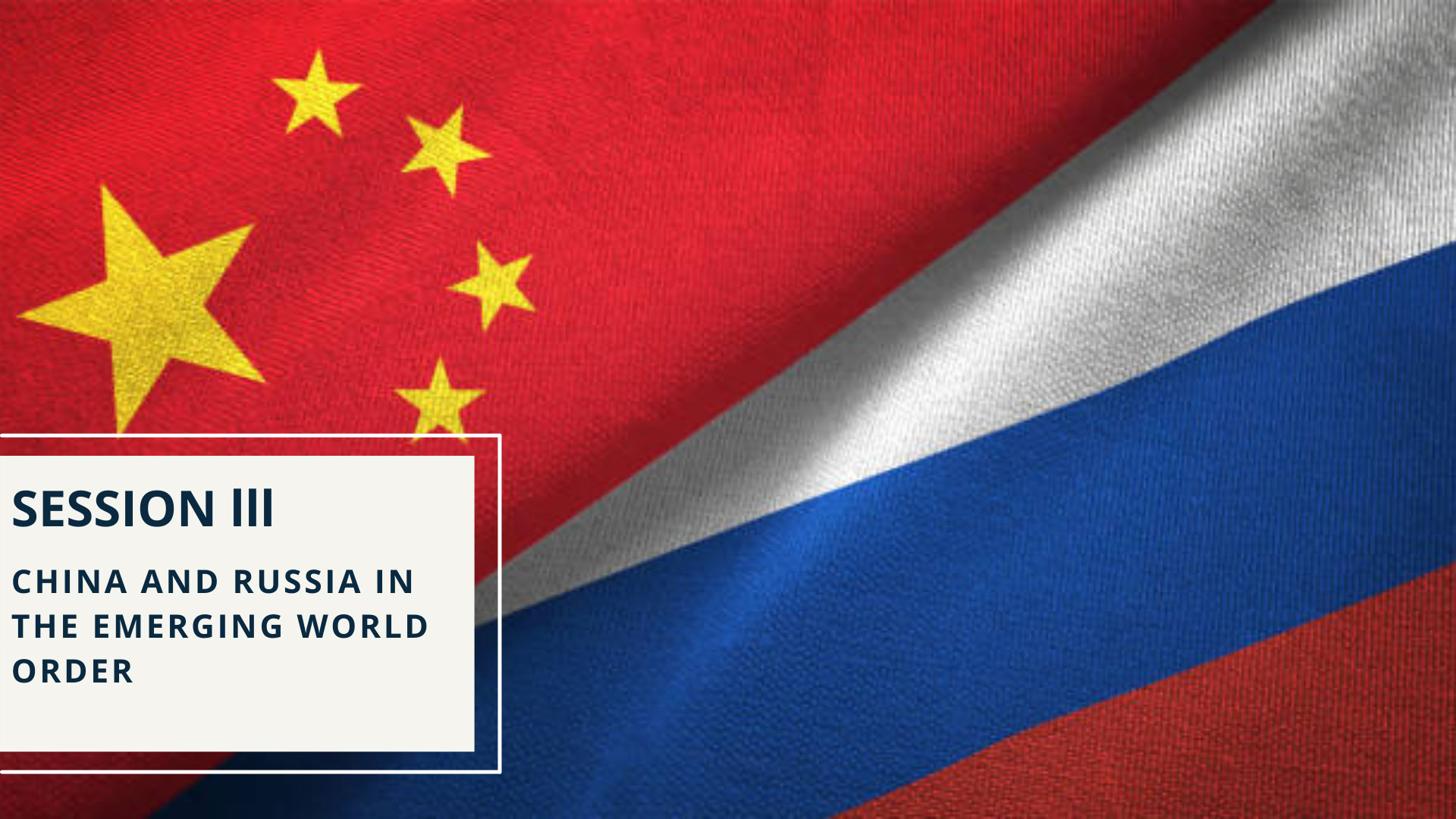SESSION III
CHINA AND RUSSIA IN THE EMERGING WORLD ORDER
The rise of China, and its spectacular economic growth over the past four
decades, is the single most important factor of change in geopolitics. Even
as she has become the second-largest economy in the world, China finds it
necessary to have a close relationship – almost but not quite an alliance –
with Russia since they jointly have similar positions on many international
issues which are in opposition to the West. Together, they punch well above
their individual weights and area significant pole in the emerging world
order of the third decade of the 21st Century.
China and Russia have a growing trade and economic relationship based on
oil and gas, armaments, technology transfers as well as investment in
Russia by Chinese firms. They almost always have identical views in the
United Nations Security Council where they are both permanent members .
Hence, their voting patterns are similar. Both these countries are members
of multilateral organizations such as BRICS and SCO. Taken together, China
and Russia form an important side of global power politics.
In this scenario, India which has had a decades long strategic partner ship
with Russia encompassing the nuclear, defence, space and high technology
fields but a much more contested and testy relationship with China, will
need to steer carefully through these currents to ensure its own interests
and objectives are met. The boundary question with China, which has
become a major security challenge for India, and that nation's increasingly
closer embrace of Pakistan are thorns in the side of our bilateral
relationship. Increasingly, the US is viewing technology transfers from
Russia, such as the S-400 missile system, as cross ing their red lines.
AGENDA
DAY II
FRIDAY 30 APRIL 2021
|
10:00 AM - 11:30 AM
- CHINA AND RUSSIA IN THE EMERGING WORLD ORDER
- INDIA-RUSSIA RELATIONS
- SINO-INDIA TIES
- THE CHINA-RUSSIA ENTENTE AND IMPLICATIONS FOR INDIA
FRIDAY 30 APRIL 2021
|
11:30 AM - 12:30 PM
- BOOK DISCUSSION
- TIANANMEN SQUARE: THE MAKING OF A PROTEST
- BOOK BY MR. VI JAY GOKHALE
CHAIR

Amb. (Retd.) Gautam Bambawale
Ambassador (Retd.) Gautam Bambawale was a member of the Indian Foreign Service from 1984 to 2018. He was India’s Ambassador to Bhutan, Pakistan and China.
Amb. (Retd.) Bambawale was stationed in Washington DC in 2004-07 during the Indo-US nuclear deal which transformed ties between the two countries. He has been India’s first Consul
General in Guangzhou (China) 2007-09. He was Director of the Indian Cultural Centre, Berlin 1994-98. Amb. (Retd.) Bambawale worked in the Prime Minister’s Office from 2002-04. At the
Ministry of External Affairs, he was Joint Secretary for East Asia from 2009-2014. Mr. Bambawale has dealt with China for 15 years of his 34 year diplomatic career.
He is currently Distinguished Professor, Faculty of Humanities and Social Sciences, Symbiosis International University, Pune and teaches a course on Diplomacy and International Governance at the Symbiosis School of International Studies.
SPEAKERS

Amb. (Retd.) P.S. Raghavan
In a career of over 36 years, Amb. (Retd.) P.S. Raghavan was Ambassador of India to Russia, Czech Republic and Ireland. He held other diplomatic positions in USSR, UK, Poland, South Africa and Vietnam.
He was Joint Secretary in the Prime Minister's Office (2000-2004) dealing with foreign affairs, nuclear energy, space, defence and national security. As Secretary (2013-14) in MEA, he was in charge of India’s external economic relations and the Administration, Security and e-governance departments of MEA. He headed (2012-13) the Development Partnership Administration, which coordinates India’s economic partnership with developing countries.
From 2016 to 2020, he was Chairman of the National Security Advisory Board (NSAB), which advises India’s National Security Council on strategic and security issues.

Shri. Vijay Gokhale
Shri Vijay Gokhale joined the Indian Foreign Service in 1981. His previous diplomatic assignments include postings in Hong Kong, Hanoi, Beijing and New York. He has also served as Deputy Secretary (Finance), Director (China & East Asia) and Joint Secretary (East Asia) during his stints at the Headquarters of the Ministry of External Affairs. He was High Commissioner of India to Malaysia from January 2010 to October 2013, Ambassador of India to the Federal Republic of Germany from October 2013 to January 2016, and Ambassador of India to the People’s Republic of China from January 2016 to October 2017. He served as Secretary (ER) from October 2017 to January 2018.
Shri Vijay Gokhale was Foreign Secretary from January 2018 to January 2020. Currently, he is a Distinguished Professor at the Symbiosis International, Pune; Senior Non Resident Fellow, Carnegie India & Emeritus Resource Faculty, Rashtriya Raksha University, Gujarat

Prof. Srikanth Kondapalli
Srikanth Kondapalli is Professor in Chinese Studies at the Jawaharlal Nehru University. He was Chairman of the Centre for East Asian Studies, SIS, JNU from 2008-10, 2012-14, 2016-18 and 2018-20.
Prof. Kondapalli was a post-Doctoral Visiting Fellow at People’s University, Beijing from 1996-98 and a Visiting Professor at National Chengchi University, Taipei in 2004. He was also a Visiting Fellow at China Institute of Contemporary International Relations, Beijing in May 2007, an Honorary Professor at Shandong University, Jinan in 2009, 2011, 2013, 2015, 2016, 2017 and 2019; at Jilin University, Changchun in 2014 and at Yunnan University of Finance and Economics, Kunming in 2016 and 2017. A Non-Resident Senior Fellow at People’s University since 2014 and a Fellow at Salzburg Global Seminar in 2010. He has authored two books- China’s Military: The PLA in Transition in 1999 and China’s Naval Power in 2001.

.png)
